Our Anesthesiology Didactic Sessions are comprehensive educational meetings designed to elevate the knowledge and skills of our residents. These sessions feature a blend of lectures, discussions, and hands-on demonstrations, covering crucial topics such as anesthesia techniques, patient safety, and pharmacology.
Education Days
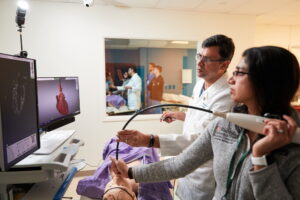
A key component of our structured education program is “Education Wednesday.” On these days, one of the CA classes is excused from clinical duties for a full day of protected education time to engage in a diverse range of learning activities. These include traditional lectures, hands-on workshops, problem-based learning modules, simulation exercises, practice questions, and board preparation.
Education Wednesdays also offer ample time for protected independent study, wellness activities, and academic project work. These sessions rotate through CA-1, CA-2, and CA-3 classes, ensuring that each resident participates approximately every third week.
Intern Curriculum
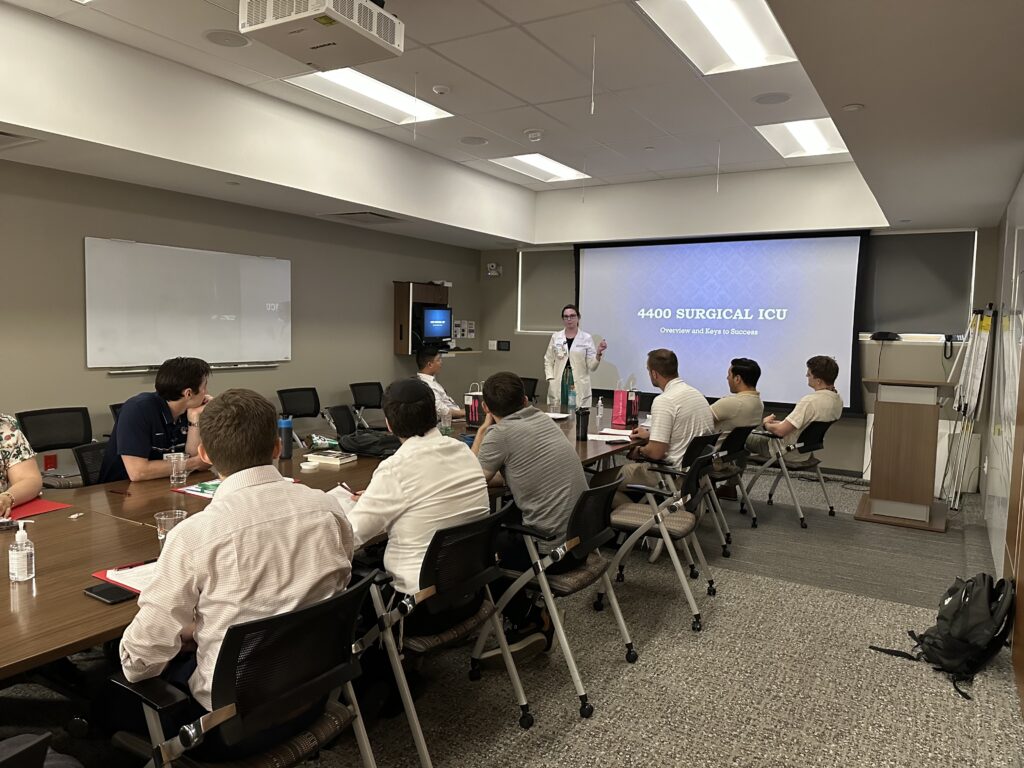
A comprehensive 16-session program designed to guide interns through their first year of residency. This curriculum is structured to foster professionalism, provide protected time for personal development, and strengthen connections within the department. Through a blend of educational and wellness-focused sessions, interns will enhance their skills, knowledge, and well-being. Example sessions:
- Effective Feedback: Master the art of giving and receiving constructive feedback.
- Workplace Culture: Navigate and contribute to a positive and safe workplace culture.
- Intro to Ultrasound: Gain foundational skills in ultrasound technology.
- Understanding Systemic Racism Curriculum: An anti-racism professional development program in partnership with the Office of Diversity, Equity and Inclusion.
- Test Prep/Study Strategies: Develop effective strategies for test preparation and study habits.
- Intro to TEE: Learn the basics of transesophageal echocardiography.
- “What I Wish I Knew as a CA1:” Gain insights from experienced residents on navigating the challenges of a first-year resident.
Basic Bootcamp — CA1

A series of focused education days specifically designed to reinforce the four key content areas of the ABA BASIC exam. This bootcamp aims to provide a comprehensive review and in-depth understanding through various engaging formats, including lectures, problem-based learning discussions (PBLDs), and creative discussions led by content experts.
Key Content Areas:
- Basic Sciences: Strengthen foundational knowledge in the basic sciences relevant to anesthesiology.
- Clinical Sciences: Enhance understanding of clinical sciences through case studies and real-world applications.
- Organ-Based Basic and Clinical Sciences: Dive deep into the organ-based sciences, combining basic and clinical knowledge for a holistic approach.
- Special Problems of Issues in Anesthesiology: Address unique and complex issues within the field of anesthesiology.
OSCE and Advanced Board Prep — CA3
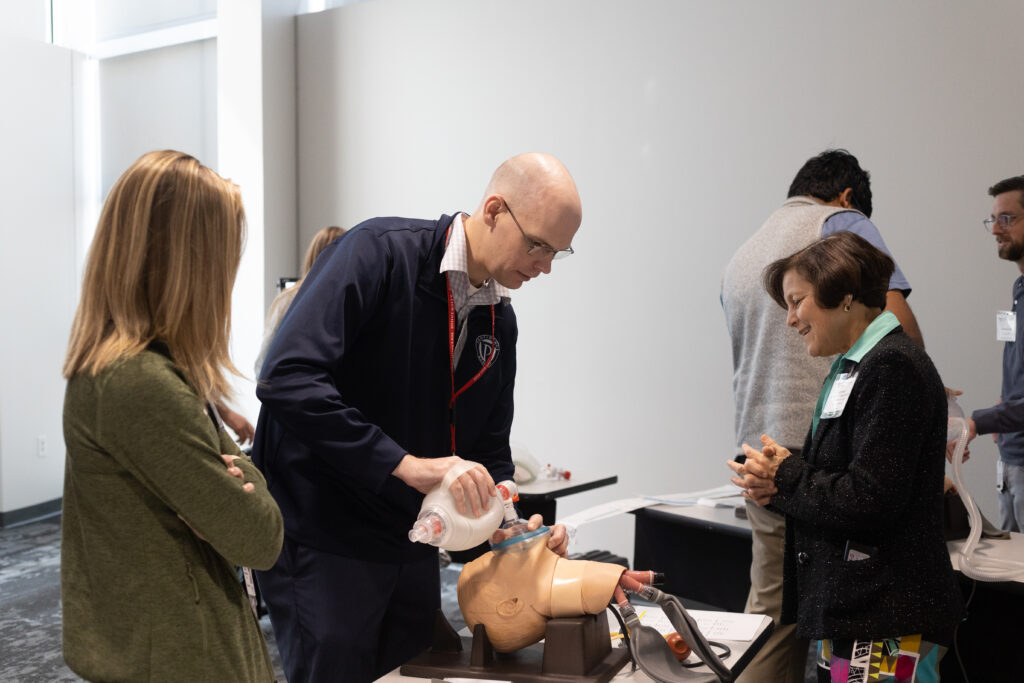
An essential component of training designed to prepare for both the OSCE exams and the ABA advanced exam. These sessions provide focused, practical education to enhance clinical skills and knowledge.
OSCE days simulate the OSCE exams using both simulation and standardized patients. Key areas covered include:
- Communication and Professionalism: Mastering effective communication techniques and upholding professional standards.
- Interpretation of Monitors: Developing the ability to accurately interpret various monitoring equipment.
- Echo and Ultrasound Skills: Gaining proficiency in using and interpreting echocardiography and ultrasound technology.
- TTE and TEE: Enhancing skills in transthoracic echocardiography (TTE) and transesophageal echocardiography (TEE).
The Advanced Board Prep sessions are dedicated education days focused on reviewing the content outlines of the ABA advanced exam. These sessions, facilitated by departmental content experts, provide the knowledge and strategies needed for success.
Subspecialty Lectures, Seminars, and Journal Clubs

Each rotation offers a specialized curriculum tailored to the specific field. For instance, cardiac rotations include dedicated lecture series and echocardiography conferences, while pediatric rotations feature lectures, a journal club, and morbidity and mortality reviews. Other specialty rotations have their own educational conferences and journal clubs where residents present and critique articles, honing their skills in evidence-based medicine.
Online Learning
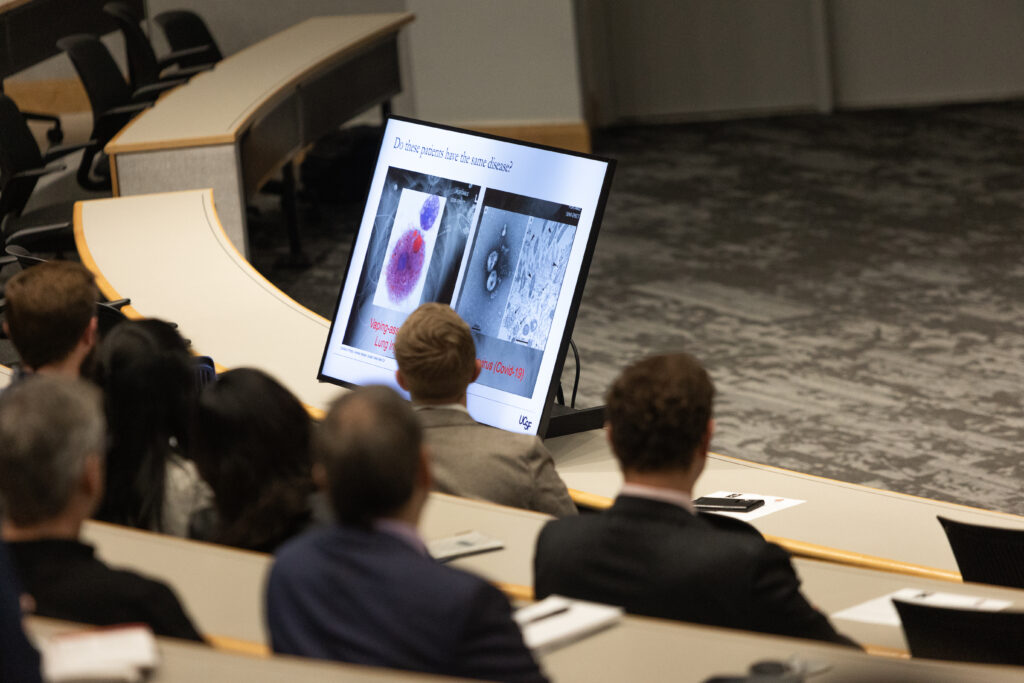
Residents have access to extensive online learning resources, including updated textbook materials, question banks, and peer-reviewed journal articles, ensuring they stay current with the latest advancements in anesthesiology.
The Anesthesia Toolbox
A collaborative educational platform developed by over 65 leading anesthesia departments worldwide. It provides high-quality, peer-reviewed resources to support learners and instructors at all training levels. The curriculum includes e-learning modules, quiz questions, problem-based learning discussions, podcasts, simulation scripts, and procedural skills training guides. Residents are enrolled in Anesthesia Toolbox at the start of their intern year and retain access throughout their training.
The Bernard Becker Library
Residents have free access to a wide variety of journals, anesthesiology textbooks, and additional references through the Bernard Becker Library.
Echocardiography
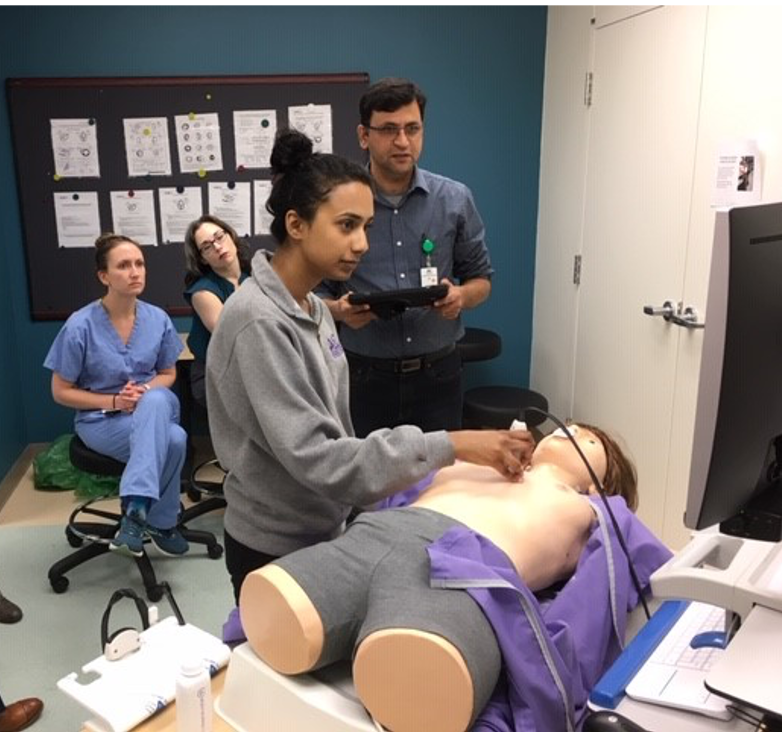
Our department offers regular workshops in Point of Care and Transesophageal Echocardiography (TEE). Residents have access to a state-of-the-art Heart Works Echo Simulator for hands-on practice. For those preparing for the Basic Exam in Perioperative Transesophageal Echocardiography by the National Board of Echocardiography, we provide additional review and teaching sessions to ensure comprehensive preparation.
Grand Rounds

Nationally and locally recognized experts present on topics relevant to anesthesiology, critical care, and pain management during our Grand Rounds. Additionally, once a month, residents host the Morbidity and Mortality Conference in place of regularly scheduled Grand Rounds. These peer-reviewed conferences present cases with significant morbidity or mortality, focusing on clinical case management and systemic issues.
Research Seminars

Our Research Seminars feature presentations by guest speakers and members of the Department of Anesthesiology, showcasing cutting-edge basic and clinical research. These seminars cover a range of topics, from basic science to translational and clinical investigations. Additionally, residents involved in ongoing research projects provide updates in a separate evening seminar series, open to all trainees and faculty, fostering a collaborative and informative environment.
C.R. Stephen Lecture
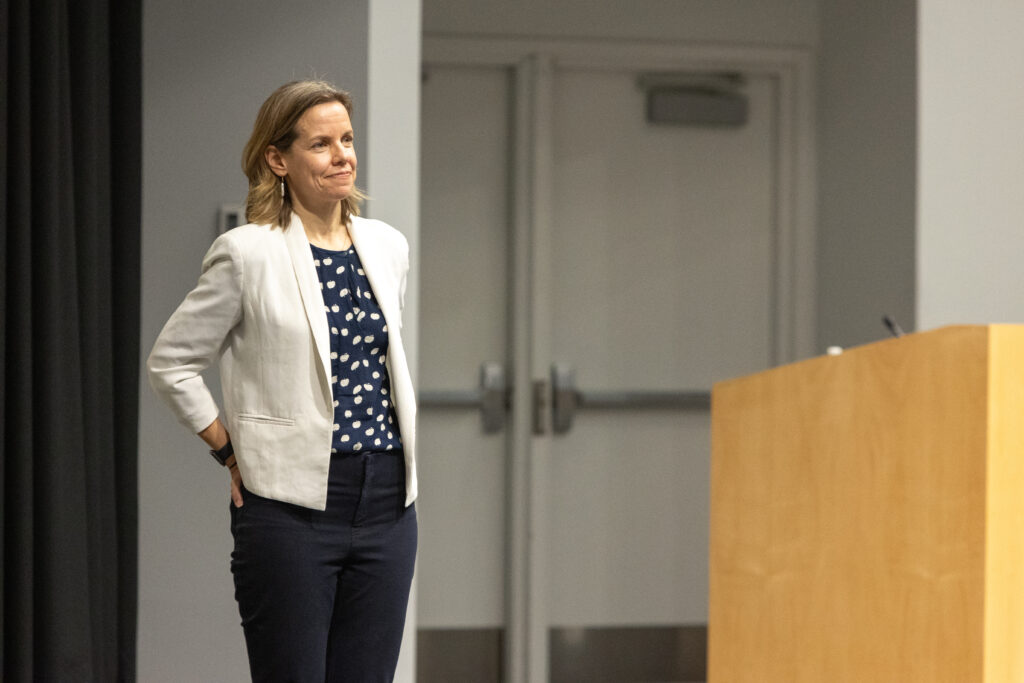
The annual C.R. Stephen Lecture honors the first Chairman of the Department of Anesthesiology at Washington University. This prestigious event features distinguished physician-scientists who present on topics of significant interest to anesthesiologists. The lecture attracts attendees from various medical disciplines, promoting interdisciplinary learning and collaboration.